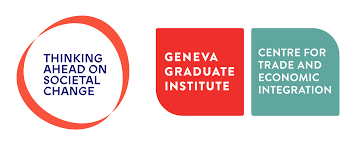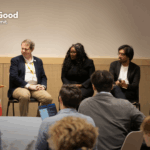AI for Good and Our Future Life™ invites storytellers to submit a short film or video about their envisioned life moments and the integration of AI within them. Share a moment of future life you see yourself in. Tell us a story about a moment, a person, a situation or something you care about that happens in the future– How does this future unite us? What world would you imagine being a part of and how does your idea let us see a glimpse of that world? The finalists will be selected to present their short film in an event during the Summit of the Future in September 2024 where the winners will be selected.
AI Futures
A cinematic exploration of everyday life driven by AI
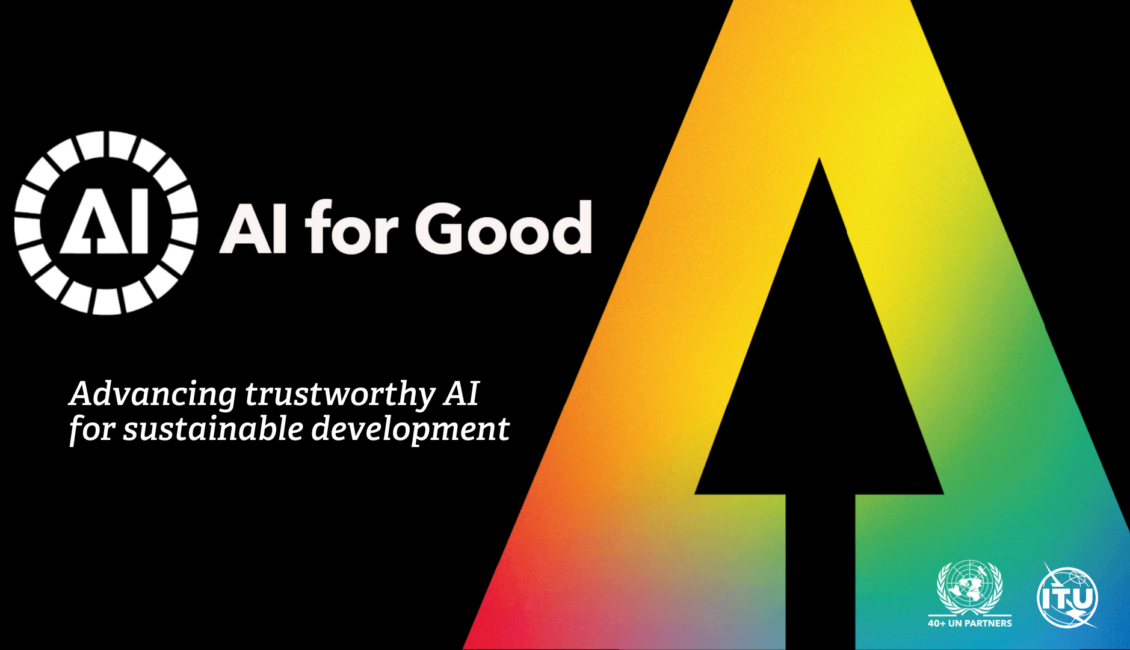
AI for Good and Our Future Life™ invites storytellers to submit a short film or video about their envisioned life moments and the integration of AI within them. Share a moment of future life you see yourself in. Tell us a story about a moment, a person, a situation or something you care about that happens in the future– How does this future unite us? What world would you imagine being a part of and how does your idea let us see a glimpse of that world? The finalists will be selected to present their short film in an event during the Summit of the Future in September 2024 where the winners will be selected.
Goals

Inspire
Inspire imagination and reflection on the possibilities of a moment of everyday life in which AI plays a part

Empower
Empower individuals from all backgrounds to tap into their creative side and manifest their visions of the future

Promote
Promote inclusive, global dialogue on how AI can impact our day-to-day lives

Advance
Advance new, innovative narratives on the potential uses of AI, pushing the boundaries beyond our current understanding
Timeline
April 2024
June 2024 – Septmember 2024
October 2024 – May 2025
July 2025
Challenge Submission
Finalists Selection
Scaling and Impact
Scaling and Impact
17 April 2024 – Call for stories
20 May 2024 – Deadline for story/storyboard submissions
30 August 2024 – Deadline for short film submissions
June – August 2024 – Applicants to create their short films
1 – 15 September 2024 – Judging panel will review the short films and select finalists
October 2024 – May 2025 – Winners showcase their film and works on its impact showcase
July 2025 – Winners present their impact story at the next AI for Good Global Summit 2025. Final awards given
Timeline
April 2024
Challenge Submission
17 April 2024 – Call for stories
20 May 2024 – Deadline for story/storyboard submissions
30 August 2024 – Deadline for short film submissions
June 2024- May 2025
Finalists Selection
June – August 2024 – Applicants to create their short films
1 – 15 September 2024 – Judging panel will review the short films and select finalists
September 2024 – Finalists present their short film at the Summit of the Future, winners are chosen.
June 2024- September 2024
Scaling and Impact
October 2024 – May 2025 – Winners showcase their film and works on its impact showcase
October 2024 – June 2025
Scaling and Impact
July 2025 – Winners present their impact story at the next AI for Good Global Summit 2025. Final awards given
Submission Guidelines
Original idea, in a story format
Showcasing a brief moment in time and part of daily life in the future
International and universal in character
Compatible with the values, purposes and principles of the UN
Use / application of AI tools should be clearly mentioned
Optional: visual elements (we encourage using ethically sourced, licensable creative tools to ensure responsible use of AI)
Judging Criteria

Creativity and Originality

Potential to Inspire and Provoke Thought

Clarity and Coherence of Message

Potential for Impact

Emotional Resonance

Global Relevance

Plausibility and Credibility
Panel of Judges
To be announced soon

A research and scientific leader in Artificial Intelligence, Alessandra is the Sr. Director of AI and Data Science at Shutterstock. Alessandra has over 18 years’ experience in research and innovation gained whilst working in academic and commercial environments. Alessandra is passionate in advanced analytics, machine learning, and computational models with the focus of transferring innovation from research to products.
As Co-chair of the UNESCO Women for Ethical AI Platform and Global President of Women in AI (a non-profit do-tank working towards gender-inclusive AI that benefits global society) Alessandra is working with a strong community of women to foster diversity , inclusion and equality for women and minorities while encouraging a global ethical approach in AI. In an advisory capacity, Alessandra also serves as the Governance Committee Chair at the Science Foundation Ireland Center for Research Training in Machine Learning.
Among several awards, Alessandra won the 2024 Grace Hopper and the 2021 XV International Prize “Le Tecno-visionarie” in the AI - Industrial Research category. In her previous role Alessandra was Head of Analytics Research at Nokia Bell Labs where she was leading research teams in several locations while driving changes across different activities like her contributions to the Nokia AI Ethics Advisory Board.

Francesca Rossi is an IBM Fellow and the IBM AI Ethics Global Leader.
She is based at the T.J. Watson IBM Research Lab, New York, USA.
At IBM, she leads AI research projects and she co-chairs the IBM AI Ethics board.
Before joining IBM, she has been a professor of computer science at the University of Padova, Italy. She actively participates in many global multi-stakeholder initiatives on AI ethics: she is a member of the board of directors of the Partnership on AI and of the steering committee of the Global Partnership on AI.
She is a fellow of both the worldwide association of AI (AAAI) and of the European one (EurAI), and she will be the next president of AAAI.
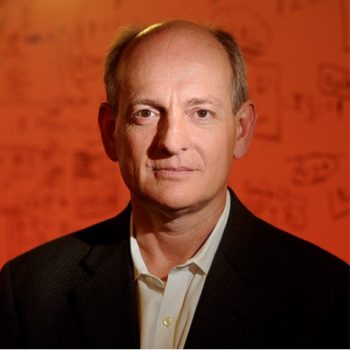
Stuart Russell received his B.A. with first-class honours in physics from Oxford University in 1982 and his Ph.D. in computer science from Stanford in 1986. He then joined the faculty of the University of California at Berkeley, where he is Professor (and formerly Chair) of Electrical Engineering and Computer Sciences and holder of the Smith-Zadeh Chair in Engineering. He is also an Adjunct Professor of Neurological Surgery at UC San Francisco and Vice-Chair of the World Economic Forum’s Council on AI and Robotics.
Russell is a recipient of the Presidential Young Investigator Award of the National Science Foundation, the IJCAI Computers and Thought Award, the World Technology Award (Policy category), the Mitchell Prize of the American Statistical Association and the International Society for Bayesian Analysis, the ACM Karlstrom Outstanding Educator Award, and the AAAI/EAAI Outstanding Educator Award. In 1998, he gave the Forsythe Memorial Lectures at Stanford University and from 2012 to 2014 he held the Chaire Blaise Pascal in Paris. He is a Fellow of the American Association for Artificial Intelligence, the Association for Computing Machinery, and the American Association for the Advancement of Science.
His research covers a wide range of topics in artificial intelligence including machine learning, probabilistic reasoning, knowledge representation, planning, real-time decision making, multitarget tracking, computer vision, computational physiology, global seismic monitoring, and philosophical foundations. His books include “The Use of Knowledge in Analogy and Induction”, “Do the Right Thing: Studies in Limited Rationality” (with Eric Wefald), and “Artificial Intelligence: A Modern Approach” (with Peter Norvig). His current concerns include the threat of autonomous weapons and the long-term future of artificial intelligence and its relation to humanity.
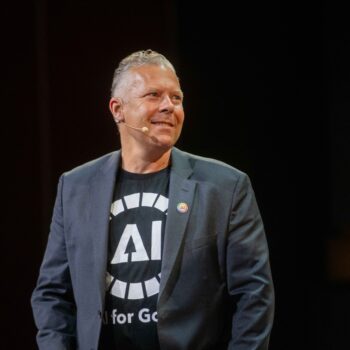
Based in Geneva, Switzerland, Frederic Werner is a recognized leader at the intersection of artificial intelligence, technology, and global development. As the Chief of Strategic Engagement at ITU, the United Nations’ specialized agency for Digital Technologies, and Chief of Strategy and Operations for AI for Good, Frederic drives initiatives that shape the future of AI’s role in solving humanity’s greatest challenges.
Frederic is a co-creator of the United Nations AI for Good Global Summit, a landmark platform connecting AI innovators with real-world problem owners to collectively advance the Sustainable Development Goals (SDGs). Under his stewardship, AI for Good has become a global hub for innovation, collaboration, and actionable solutions, redefining how AI is used for social good.
At ITU, Frederic leads transformative strategic initiatives, driving global collaboration in digital transformation and standards development to address critical challenges. His leadership ensures the organization remains a leader in setting international standards and leveraging AI to advance the SDGs.
Before joining ITU, Frederic held pivotal roles that shaped global ICT collaboration. As Communications & Program Director of ETIS in Brussels, he established a pan-European network of CIOs and cybersecurity leaders. Earlier, as Head of Marketing and Communications at the European Organization for Conformity Assessment, he spearheaded capacity-building projects with the European Commission, strengthening ICT infrastructures in EU candidate countries.
A recognized figure in the AI sphere, Frederic is a regular keynote speaker and panellist at global tech and AI events, such as Davos, Vivatech, SXSW, World AI Festival Cannes, AI Africa Expo, World AI Summit Amsterdam, AWS Reinvent and GITEX to name a few. His insights on AI capacity building, governance and standards have led to numerous interviews and features across international media, books, and podcasts.
Academically, Frederic holds a B.A. in Business & Human Resources Management with a Communications Minor from Vrije Universiteit Brussel, an MBA in International Business from United Business Institutes, a Technical MBA in Telecoms Technology from Informa Telecoms, and a certificate from the MIT Sloan School of Management on AI’s Business Strategy Implications.
Having lived in diverse countries such as Belgium, Senegal, the United Kingdom, the Philippines, Austria, Turkey, Hungary, and Switzerland, Frederic brings a unique and global perspective to his partnerships and collaborations.
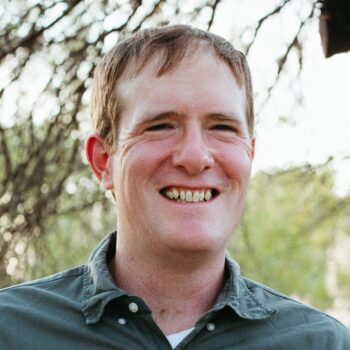
Ed Finn is the founding director of the Center for Science and the Imagination at Arizona State University where he is an associate professor in the School for the Future of Innovation in Society and the School of Arts, Media and Engineering. He also serves as the academic director of Future Tense, a partnership between ASU, New America and Slate Magazine, and a co-director of Emerge, an annual festival of art, ideas and the future. Ed’s research and teaching explore imagination, digital culture, creative collaboration, and the intersection of the humanities, arts and sciences. He is the author of What Algorithms Want: Imagination in the Age of Computing (MIT Press, spring 2017) and co-editor of Future Tense Fiction (Unnamed Press, 2019), Frankenstein: Annotated for Scientists, Engineers and Creators of All Kinds (MIT Press, 2017) and Hieroglyph: Stories and Visions for a Better Future (William Morrow, 2014), among other books. He completed his PhD in English and American Literature at Stanford University in 2011 and his bachelor’s degree at Princeton University in 2002. Before graduate school, Ed worked as a journalist at Time, Slate, and Popular Science.

Amir Banifatemi is the Chief Responsible AI Officer at Cognizant, where he leads the company’s global efforts to embed safety, transparency, and accountability into AI systems and services. He oversees the design and implementation of Cognizant’s Responsible AI framework, ensuring alignment with international standards such as ISO/IEC 42001, NIST AI RMF, and other emerging governance models across sectors and jurisdictions.
A prominent voice in international AI policy and governance, Amir contributes to key initiatives at the OECD, GPAI, IEEE, and the ITU, where he focuses on operationalizing responsible AI and advancing cross-sector standards for AI safety and accountability. He co-leads working groups on AI Futures, AI-Enabled Investments, and Trustworthy AI Ecosystems.
Previously, Amir served as Chief Innovation and Growth Officer at XPRIZE, where he launched and directed global competitions addressing grand challenges in AI, climate, and health. He co-founded the AI for Good movement and helped establish the AI for Good Global Summit in partnership with the ITU, aligning AI innovation with the UN Sustainable Development Goals.
With more than 25 years of experience at the intersection of innovation, deep technology, and investment, Amir has helped shape and scale breakthrough initiatives across sectors—from public institutions like the European Space Agency and European Commission to venture-backed technology startups. He brings a systems-level approach to advancing emerging technologies such as AI, quantum computing, and predictive systems, with a consistent focus on real-world impact, interdisciplinary collaboration, and sustainable value creation.
He holds degrees in Electrical Engineering, an MBA, and a Doctorate in System Design and Cognitive Sciences.
Application form
FAQ
The submission should include one paragraph with a short summary of the story,
and no more than two pages for the story itself. The story can be elaborated on later for the film submission if the applicant is shortlisted.
The accepted formats for story/storyboard submissions are JPG, PNG, or PDF files.
Yes, but the stories will be evaluated first from 20-28 May.
Yes, but only if it has been adapted for this contest and if it has not been presented before in a public showcase.
Selected stories will be evaluated by a jury and presented to public voting during the AI for Good Global Summit 2024. Up to 25 top voted stories will become finalists and get the opportunity to create a short 2-4 minute film/video/ARVR and a chance to present it during the United Nations Summit of the Future in New York in September 2024. A jury will evaluate the film and the winners will be announced.
Stories/storyboards can be submitted in any language, however please make sure to also provide the English translation for the title and short summary.






